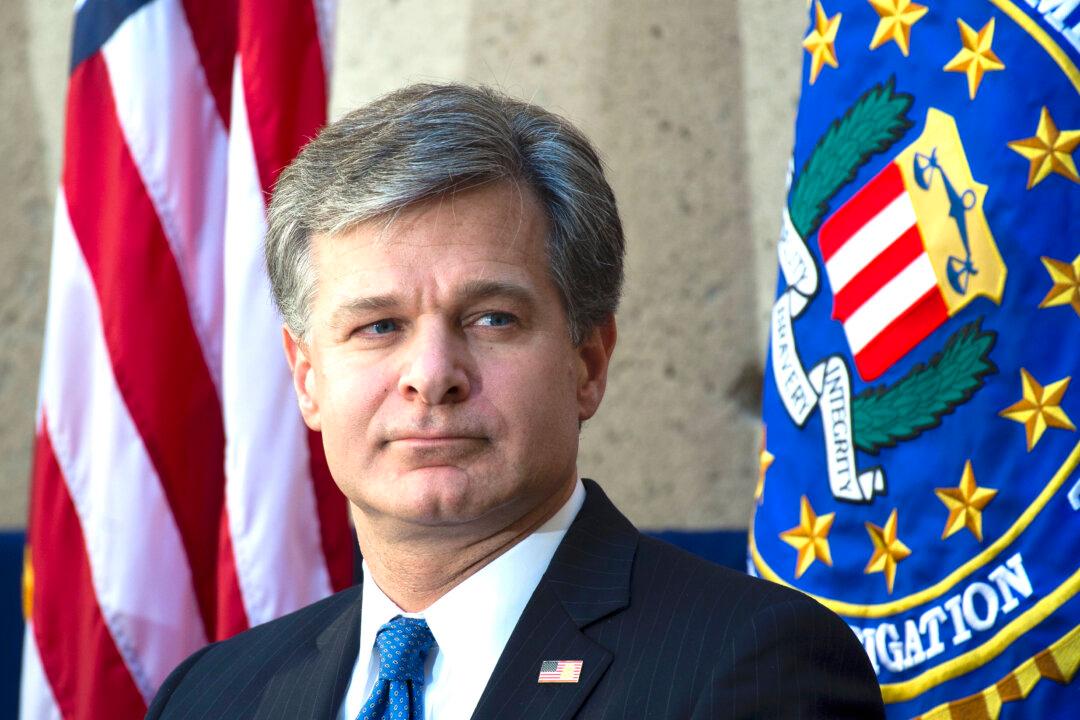FBI Director Christopher Wray revealed on July 18 that the FBI is investigating Chinese economic espionage cases in all 50 U.S. states, and that China is regarded as the “most significant” long-term threat to the United States.
Wray, speaking to NBC at the Aspen Ideas Forum on July 18, said Chinese espionage “covers everything from corn seeds in Iowa to wind turbines in Massachusetts and everything in between.”





